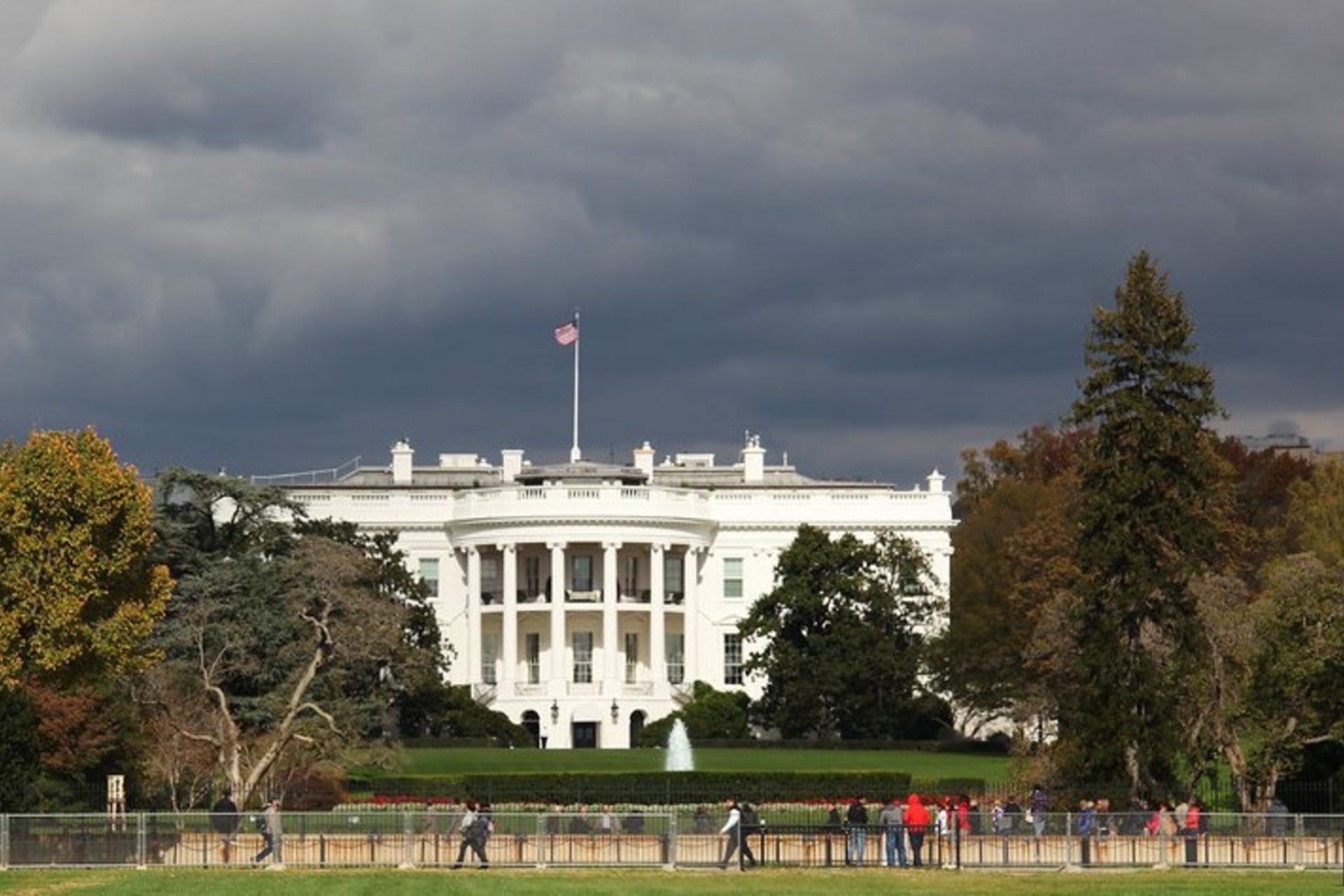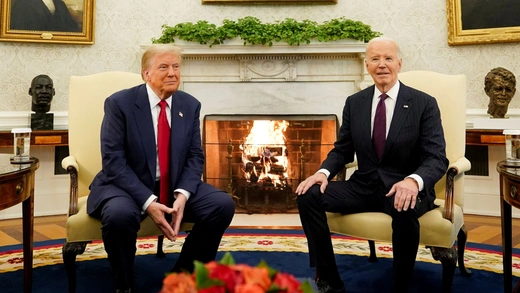Transition 2025: Donald Trump Builds His National Security Team
Each Friday, I examine what is happening with President-elect Donald Trump’s transition to the White House. This week: Trump’s choices for senior positions on his national security team prize loyalty over qualifications and worldview.

By experts and staff
- Published
Experts
![]() By James M. LindsayMary and David Boies Distinguished Senior Fellow in U.S. Foreign Policy
By James M. LindsayMary and David Boies Distinguished Senior Fellow in U.S. Foreign Policy
President-elect Donald Trump announced the picks for his national security team this week. Eight years ago, he chose individuals with long records in either government service or in business. Convinced that such a conventional approach limited what he was able to accomplish in his first term, he has opted this time around to pick people whose primary qualification looks to be their loyalty to him. In doing so, he may have made it harder to achieve the foreign policy goals he has set for himself.
Trump is drawing heavily on sitting and former members of Congress for his picks. He named Florida Congressman Mike Waltz to be national security advisor, Florida Senator Marco Rubio to be secretary of state, New York Congresswoman Elise Stefanik to be ambassador to the United Nations, former Hawaii Democratic Congresswoman Tulsi Gabbard to be director of national intelligence, and former Texas Congressman and Director of National Intelligence John Ratcliffe to be director of the CIA. He also named Fox News media personality Pete Hegseth to be secretary of defense, former Arkansas Governor Mike Huckabee to be ambassador to Israel, South Dakota Governor Kristi Noem to be secretary of homeland security, and real-estate developer and Trump golfing buddy Steven Witkoff to be special envoy for the Middle East.
Trump’s selections of Rubio and Waltz look like traditional national security picks. Their foreign policy worldviews—both are hardline conservatives who see China as an existential threat to the United States—may not resonate with all Americans. But both have extensive foreign policy and government experience. They know the issues and the players.
The same cannot be said of Trump’s other picks. Gabbard has strong views on U.S. policy—mainly that it is misguided—but little experience in national intelligence work. Her sympathy for Vladimir Putin has prompted critics to ask, as one headline put it, “Is she a Russian asset or a dupe?” Hegseth has no significant executive experience even though he is being asked to lead what is the world’s largest and most complex organization. Neither Huckabee nor Witkoff has prior diplomatic experience let alone deep Middle East expertise.
The Senate will now assess the qualifications that Gabbard, Hegseth, Huckabee, and other Trump appointees bring to government. (Waltz’s position does not require Senate confirmation; it is unclear whether Witkoff’s does.) Barring the release of damaging information not currently in the public record, however, the Senate will confirm their nominations.
That is partly because the incoming Republican Senate majority will feel obliged to approve Trump’s picks. He and his core supporters will certainly give them every reason to say yes.
But history and practical politics also mitigate against rejecting Trump’s nominees. The Senate last rejected a cabinet nominee in 1989. Then it blocked Republican Senator John Tower from becoming secretary of defense. The Democrats controlled the Senate at the time, and Tower was Republican President George H.W. Bush’s nominee. So party loyalty was not in play.
This time around, Republican senators will worry more about Trump’s even more controversial nominations of former Florida Congressman Matt Gaetz to be attorney general and Robert F. Kennedy, Jr. to be secretary of Health and Human Services. Gaetz’s nomination could stumble over deeply troubling questions about sexual misconduct and illicit drug use. Kennedy’s nomination to oversee the U.S. health system could falter over his lack of qualifications and his discredited public-health views.
Rejecting either or both the Gaetz and Kennedy nominations would make Republican senators far less inclined to scuttle any other nominee. They know that doing so would damage Trump’s presidency just as it starts as well as enflame the MAGA base.
So Trump will likely get the national security team he has selected. But elevating personal loyalty over experience and a shared worldview in making his picks may come back to haunt him. Senior foreign policy positions are poor places to learn on the job. Even experienced leaders find it hard to make large, complex organizations work. Inexperienced ones find themselves stumbling into crises that more seasoned hands would have avoided.
The fact that Trump’s picks do not agree on the proper U.S. role in world will only complicate things. Yes, divergent views can improve decision-making by preventing groupthink and subjecting policy assumptions to scrutiny. But Trump’s national security team looks to have too much of a good thing. Valuable time and energy will be wasted on backbiting, freelancing, and bureaucratic feuds.
All in all, expect foreign policy in the second Trump administration to be even more chaotic and turbulent than it was in the first term.
The Vote
Election Day was ten days ago, and votes are still being counted in some states. (California is particularly slow.) But the headlines of Election 2024 have been written. The Republicans will control the White House, the Senate, and the House.
That trifecta is a considerable accomplishment. Divided government has been the norm for decades. The same party has controlled the White House and Congress for just ten of the past forty-four years. The question, of course, is not just whether a party can win control of both ends of Pennsylvania but whether it can keep it. The last president whose party controlled Congress for a full term in office was Jimmy Carter.
The general contours of the Senate that convenes on January 3 have been set. Fifty-three Republicans, forty-five Democrats, and two Independents who caucus with the Democrats will take the oath of office. The precise line-up of senators has yet to be determined. Both Rubio and JD Vance will resign their seats in the coming weeks to join the Trump administration. Florida and Ohio both have Republican governors. They will name Republicans to fill those two vacancies. Looking ahead to the 2026 congressional midterms, thirty-five Senate seats will be up for election. Twenty-two of those seats will be held by Republicans, while thirteen will be held by Democrats.
A few House races have yet to be called. It is clear, however, that Republicans will control the House with just a few votes to spare. Indeed, Trump has made things tougher for Mike Johnson, who will likely continue as speaker of the House. As noted above, the president-elected has plucked Representatives Gaetz, Waltz, and Stefanik for administration posts. Whereas governors can name people to Senate vacancies until the next scheduled election, open House seats can only be filled through elections. Gaetz, Waltz, and Stefanik all come from red districts, so they almost certainly will be succeeded by fellow Republicans. However, those special elections could take several months to hold, putting additional pressure on Johnson to keep the House Republican conference in line. He knows firsthand that that can be difficult to do. The first battle could pitch tax-cutters against deficit hawks.
Looking ahead to House races in 2026, here is a statistic to keep in mind: The president’s party has lost House seats in five of the past six midterm elections. The only exception was in 2002 when Republicans picked up eight seats when Republican President George W. Bush was riding high in the polls in the aftermath of September 11. In the five midterms since then, the president’s party has lost an average of thirty-one seats.
What Trump Is Saying
Trump did most of his speaking this week with his personnel decisions. On Wednesday, he went to the White House to meet with Joe Biden to discuss the transition, something he did not offer president-elect Biden four years ago. The two men made brief public remarks.
Trump was gracious, saying among other things: “In many cases, not a nice world, but a nice world today… we’re going to have a very smooth transition.”
What the Biden Administration Is Doing
The Biden administration continues to try to run through the tape, as they say in track and field, with their time in office set to end in just over two months. Secretary of State Antony Blinken promised to push through six billion dollars’ worth of supplies to Ukraine before January 20. He also assured NATO leaders in Brussels of the U.S. commitment to NATO.
The Biden administration is seeking to finalize deals with semiconductor producers like Intel and Samsung under the terms of the 2022 Chips and Science Act. The move is intended to limit the Trump administration’s ability to reverse the legislation. The Commerce Department has $39 billion to disburse. So far, however, it has signed only one binding agreement.
Biden met with Israeli President Isaac Herzog on Tuesday to discuss a possible ceasefire in Gaza and southern Lebanon. The discussion did not produce any immediate breakthroughs. Shortly after the meeting, the Biden administration announced that it would not limit the flow of weapons to Israel. The administration had threatened to restrict weapon sales last month but relented on the grounds that Israel had made “limited progress” in sending aid to Gaza.
Biden will meet tomorrow with Chinese President Xi Jinping on the sidelines of the Asia-Pacific Economic Cooperation summit in Lima, Peru. The meeting is not likely to produce any substantive deliverables. Xi knows that Trump can immediately unwind anything Biden agrees to do.
What the Pundits Are Writing
Politico’s Nahal Toosi asked if Trump can avoid repeating the three mistakes that bedeviled his first term: an aversion to doing things systematically, an unwillingness to acknowledge that some of his preferences conflict, and a love of chaos. Toosi’s conclusion? “Trump’s aides may be more focused and more motivated than ever, but their boss has a history of struggling to follow an orderly process—especially on national security and foreign policy issues—having contradictory priorities and fixating on vengeance over policy. He also thrives on chaos, undermining even his most loyal underlings.”
The Presidential Certification Schedule
The deadline for governors to submit their state’s certificate of ascertainment, which certifies the results of the presidential election in their state and lists their state’s slate of electors, is in twenty-six days (December 11).
Electors meet in each state and the District of Columbia to cast their votes for president and vice president in thirty-two days (December 17).
The 119th U.S. Congress is sworn into office in forty-nine days (January 3)
The U.S. Congress certifies the results of the 2024 presidential election in fifty-two days (January 6).
Inauguration Day is in sixty-six days (January 20, 2025)
Oscar Berry assisted in the preparation of this post.

